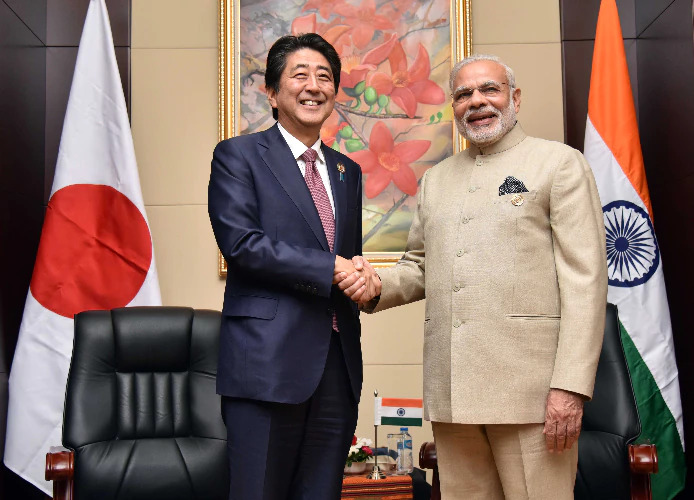NewsGate Press Network
Prime Minister Narendra Modi and his Japan counterpart Fumio Kishinda on Monday the 20t of March 2023 held wide ranging discussions on subjects that included defence equipment and technology cooperation, trade, health, digital partnership and also had a fruitful discussion on importance of reliable supply chains in semiconductor and other critical technologies.
The two leaders had “excellent talks” during Kishida’s visit to New Delhi with the Prime Minister stating that strengthening bilateral partnership is not only important for both our countries, it also promotes peace, prosperity and stability in the Indo-Pacific region.
He said that the two countries had last year set a target of Japanese investment of 5 trillion yen (Rs3,20,000 crore) in India in the next five years and it is a matter of satisfaction that there has been good progress in this direction.
PM Kishida’s visit assumes significance as India is chairing the G20 and Japan is chairing the G7.
Following talks between the two leaders, there was an exchange of notes between the Ministry of External Affairs of the Republic of India and the Ministry of Foreign Affairs of Japan of tranche-IV JICA ODA Loan of JPY 300 billion for Mumbai Ahmedabad High Speed Rail (MAHSR).
The two countries also signed a Memorandum of Cooperation in the field of Japanese Language Education in India.
During his hectic schedule in Delhi, PM Kishida delivered the 41st Sapru House Lecture on “Free and Open Indo-Pacific (FOIP)” in which he termed India as in Indispensable partner.
Briefing about the talks between prime minister Narendra Modi and the Japan PM, Foreign Secretary Vinay Mohan Kwatra said the two leaders spoke about how India, Japan and other like-minded countries work together to address the challenges, particularly in the wider-expanse of Indo-Pacific.
Asked if Chinese aggressiveness was discussed by two leaders, Kwatra said the two leaders spoke about the ongoing developments in the region and also globally.
“Naturally, as part of those discussions, they spoke about the challenges that we face in the region. How India and Japan and other like-minded countries can work together to address those challenges and not just focus on challenges, but also focus on cooperation, particularly in the wider-expanse of Indo-Pacific.”
Kwatra said that there was no discussion between the two leaders on the question of expansion of Quad.
“All the Quad members are very clear in their mind that Quad needs to undergo a very-very appropriate phase of consolidation before we look to anything other than Quad.” Quad includes Australia, India, Japan and the United States.
Kwatra said PM Kishida had extended an invitation to PM Modi for attending the G7 Leaders’ Summit to be held in Hiroshima in May and it has been accepted.
In the joint press meeting after talks with PM Kishida, Prime Minister Modi said India-Japan Special Strategic and Global Partnership is based on shared democratic values, and respect for the rule of law in the international arena.
Japanese Prime Minister Fumio Kishida unveiled his government’s much-awaited plan for a free and open Indo-Pacific while projecting India as an “indispensable partner” to achieve the ambitious goal of peace, prosperity and stability in the region.
The plan that comes amid China’s growing military muscle-flexing in the Indo-Pacific comprises four key pillars and seeks to enhance connectivity, foster the region into a place that values the rule of law and keep it free from “force or coercion”.


Comments are closed for this post.